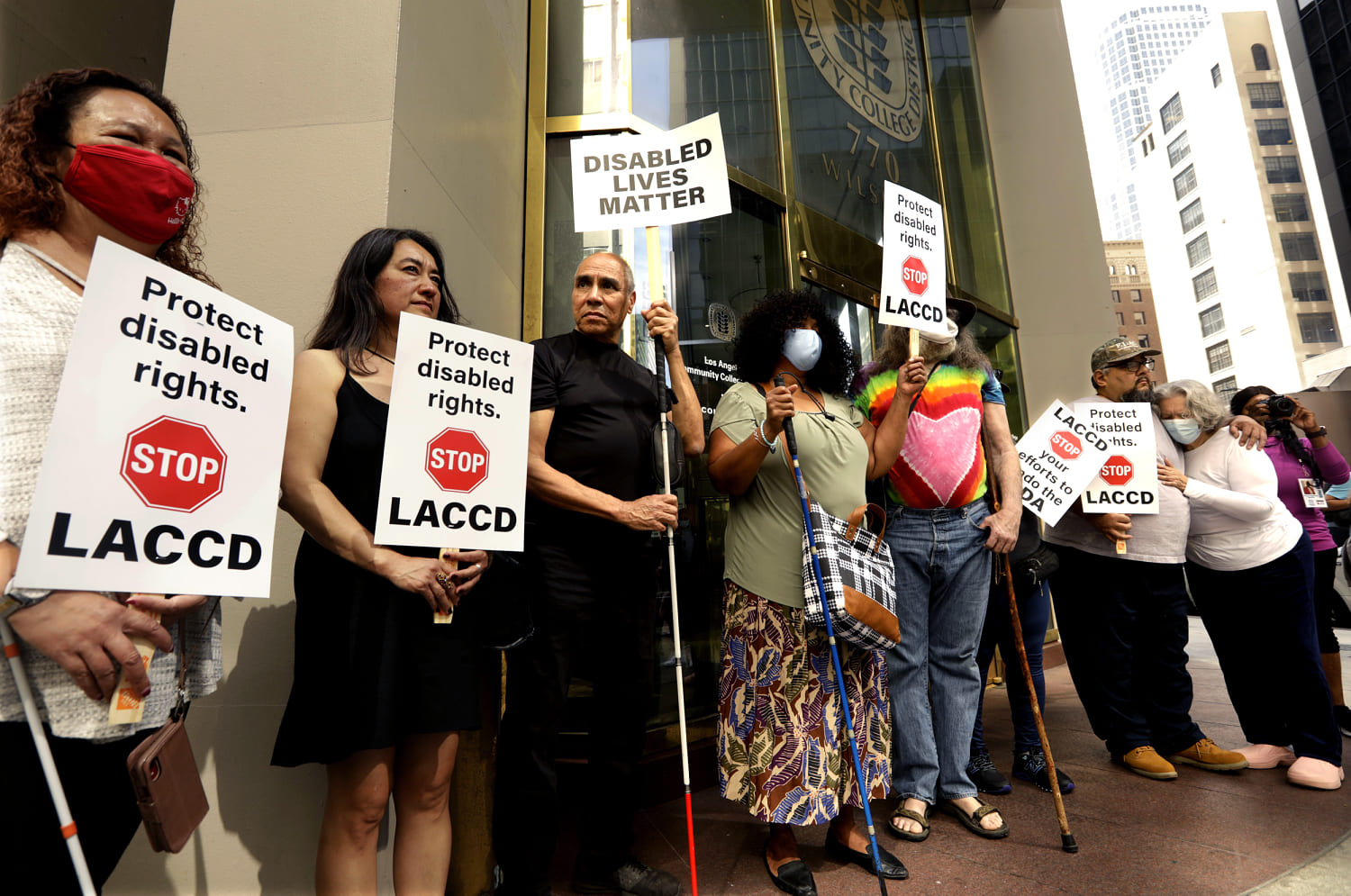
To count the number of Americans who are disabled, the U.S. Census Bureau, through its ACS questionnaire, asks yes-or-no questions about whether one or more people in a household have “serious difficulty” doing a number of things including hearing, seeing, walking or climbing stairs, bathing or doing errands alone. An October 2022 study from Health Affairs found that a quarter of respondents with psychiatric disabilities and one-fifth of people with developmental disabilities didn’t respond “yes” to any of those questions, proof that the current questionnaire doesn’t accurately capture some disabilities.
People with disabilities have good reason to fear that such a change could lead to many of them being overlooked.
That’s why it’s distressing that the National Center for Health Statistics has proposed that the Census Bureau replace the yes-and-no questions with questions from the Washington Group Short Set on Functioning (WG-SS), which prompts respondents to answer whether they have no difficulty, some difficulty, a lot of difficulty with some tasks or if they can’t do them at all.
People with disabilities have good reason to fear that such a change could lead to many of them being overlooked. Indeed, when the Census Bureau tested the questions in 2022, “the estimated percent of the U.S. population with any disability was about 40 percent lower” in the test than in a control group.
The Health Affairs study found that the WG-SS survey failed to identify 43% of respondents with disabilities. Meanwhile, an analysis by the National Partnership of Women and Families conducted an analysis and found that the proposed survey standard would cut the counted number of women and girls with disabilities by 9.6 million.
Given that the United States has just gone through a pandemic that, in addition to claiming the lives of 1.14 million people, resulted in 6.9% of Americans experiencing long Covid, the Census Bureau has not only a duty but an incredible opportunity to make sure it accounts for as many disabled people as possible. Unfortunately, the U.S. may be on the cusp of doing the opposite. This week the bureau closed public comments on the proposed change that would replace yes-and-no questions with graded ones.
American disability policy, including the landmark American with Disabilities Act, resulted in more people with disabilities being pulled in from the margins and being included in the larger society. The move from institutionalization to living within the community, for example, meant society had to acknowledge their disabilities and move the world around them.
As I wrote in my book “We’re Not Broken,” the passage of the Individuals with Disabilities Education Act, combined with the expanded diagnostic criteria, helped America realize that autism is more prevalent than previously thought. An accurate count of who is disabled in America ostensibly would inform how much governments spend to make the country truly accessible in everything from employment to education to transportation. An accurate count would also help the United States determine who is eligible for social services such as Supplemental Security Income and Social Security Disability Insurance.
The language attached to the public comment notice for the proposed change points out that changing from yes-or-no questions to graded answers would make the U.S. Census definition of disability “conceptually consistent” with the World Health Organization’s International Classification of Functioning, Disability, and Health disability framework.
But that’s not progress. The United States has often been ahead of other countries when it comes to disability rights. Indeed, the Americans with Disabilities Act inspired the passage of similar laws across the world, including in Luxembourg, Sweden, the United Kingdom, Italy and Japan. The United Nations modeled the Convention on the Rights of Persons with Disabilities, its treaty protecting the rights of people with disabilities, after the ADA, but, in a sad irony given the involvement of Republicans in the passage of the ADA, Republicans blocked the United States from ratifying the U.N. treaty in 2012.
Adopting international standards would be a major step back.
Adopting international standards would be a major step back.
Disabled life in America has changed. The unemployment rate for people with disabilities is now lower than it was before the Covid-19 pandemic began, both as part of the jobs boom and because of the increase of people who experience symptoms of long Covid but continue to work. At the same time, a study conducted last year by the Brookings Institution found that long Covid could be keeping as many as 4 million out of the workforce.
These changes in America’s labor force are significant, but government policies won’t properly align with those changes if people with disabilities aren’t accurately counted. A more accurate number can lead to new policies such as flexible work schedules or increased use of telework. More accuracy could also be used to help determine who will need long-term government assistance and social welfare benefits, which could trigger an expansion of the welfare state.
People with disabilities have often been disappointed over the last several years. Some of these reasons are President Joe Biden’s fault, such as his premature declaration that “the pandemic is over,” even as Covid continued to claim lives. Other reasons, such as the failure to pass home-and-community-based services to allow people to receive care in their homes rather than nursing homes or institutions, fall squarely on the shoulders of the intransigent Sen. Joe Manchin, D-W.Va, for his refusal to support Biden’s Build Back Better legislation.
To his credit, Biden is taking steps to listen to long-standing concerns about the continuation of sub-minimum wage labor, which exploits disabled Americans in the workforce. But switching to a new survey method that would reduce the number of disabled Americans counted, even as Covid has added to this population, would be a drastic disservice to this population.
![]()





